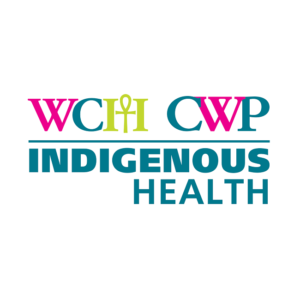Connecting Indigenous communities with culturally-relevant COVID-19 vaccine information
Unpacking biomedicine, traditional knowledges and healing practices through oral storytelling and visualizations to support First Nations, Inuit and Métis in making informed choices.
Knowledge is Medicine. Love is Medicine. Storytelling is Medicine. Kinship is Medicine.
Anishinaabemowin Translation provided by Loretta Assinewai-Fox and “her aunties”
 TORONTO– On February 4, 2021, Maad’ookiing Mshkiki – Sharing Medicine launched, a virtual hub that provides culturally-relevant and trauma-informed information about COVID-19 vaccinations for First Nations, Inuit and Métis. The community-centred resources aim to empower informed consent for Indigenous peoples and have been developed by the Centre for Wise Practices in Indigenous Health (CWP-IH) at Women’s College Hospital in partnership with the Indigenous Primary Health Care Council (IPHCC), Anishnawbe Health Toronto (AHT), The Indigenous Health Program at University Health Network (UHN) and Shkaabe Makwa (CAMH). Several local and homeland health and community organizations have aligned on the project as Circle of Community Engagement & Review members:
TORONTO– On February 4, 2021, Maad’ookiing Mshkiki – Sharing Medicine launched, a virtual hub that provides culturally-relevant and trauma-informed information about COVID-19 vaccinations for First Nations, Inuit and Métis. The community-centred resources aim to empower informed consent for Indigenous peoples and have been developed by the Centre for Wise Practices in Indigenous Health (CWP-IH) at Women’s College Hospital in partnership with the Indigenous Primary Health Care Council (IPHCC), Anishnawbe Health Toronto (AHT), The Indigenous Health Program at University Health Network (UHN) and Shkaabe Makwa (CAMH). Several local and homeland health and community organizations have aligned on the project as Circle of Community Engagement & Review members:
| Seventh Generation Midwives | Well Living House | Toronto Council Fire | Na-Me-Res |
| The Native Canadian Centre of Toronto | Waakebiness-Bryce Institute for Indigenous Health | Toronto Birth Centre | Juddah’s Place |
| Barrie Native Friendship Centre | Mamaway Wiidokdaadwin | Toronto Indigenous Harm Reduction | Anishawbe Mushkiki |
| Nishnawbe Aski Nation ᐊᓂᔑᓇᐯ ᐊᔅᑭ ᐅᑭᒪᐎᓐ | National Association of Friendship Centres | Native Child & Family Services of Toronto | Toronto Inuit Association |
“The Maad’ookiing Mshkiki virtual hub shares accessible resources that recognize and respect Indigenous worldviews and upholds the principles and values of sharing Indigenous wisdom in oral storytelling,” says Elder Kahontakwas Diane Longboat. “We aim to share traditional knowledges and healing practices across our cultures with western biomedical scientific information while also acknowledging traumatic experiences in healthcare.”
“Indigenous adults are identified as a priority group in the rollout of COVID-19 vaccinations,” says Dr. Lisa Richardson, Strategic Lead in Indigenous Health at Women’s College Hospital. “Yet beyond providing access to vaccines, there may be barriers to the uptake of COVID-19 vaccines due to the historical and ongoing mistreatment faced by First Nations, Inuit and Métis peoples in the health care system. The creation of culturally relevant educational materials that allow Indigenous people to make informed choices about the vaccines is critical.” The new virtual hub provides access to videos, fireside chats, community resources, infographics and other materials that are culturally and contextually relevant for First Nations, Inuit and Métis communities that draw upon the expertise, wisdom and kinship relations of trusted community members, Elders, Knowledge Keepers, Traditional Practitioners, Indigenous physicians and health service providers.
“This project provides accessible resources that are grounded in Indigenous histories, cultures, and worldviews,” says Caroline Lidstone-Jones, CEO of the Indigenous Primary Health Care Council. “By sharing traditional knowledges and healing practices along with western, scientific information about vaccines, these resources provide information to enable and empower people to make informed decisions about their own health and wellbeing.”
Many of the materials draw upon personal experiences, perspectives and narratives rooted in knowledge translation to explain public health information specific to COVID-19 vaccination ingredients, precautions, side-effects, benefits and commonly asked questions. The initiative also explores pathways that connect traditional healing, sciences and wellness practices with western health-based recommendations that can build immunity.
“We are using a decolonizing approach and framework to situate and unpack the concept of ‘vaccine hesitancy,’ and provide information about the COVID-19 vaccinations,” says Renee Linklater, Senior Director for Shkaabe Makwa at CAMH. “This project also aims to build on other community-led and allied initiatives that share the goal of advancing access to quality and safe healthcare services for our communities.”
“COVID-19 vaccines are good medicine. They will protect you, your family, our elders and our communities,” says Joe Hester, Executive Director Anishnawbe Health Toronto.
The new Maad’ookiing Mshkiki – Sharing Medicine virtual hub is open to the public and will be updated with new tools and resources regularly.
Interviews are available with Dr. Lisa Richardson, Strategic Lead in Indigenous Health at WCH and UofT and staff physician in General Internal Medicine, UHN; Joe Hester, Executive Director, Anishnawbe Health Toronto; Renee Linklater, Senior Director, Shkaabe Makwa (CAMH); Caroline Lidstone-Jones, CEO, Indigenous Primary Health Council; Elder Kahontakwas Diane Longboat; and Selena Mills, Health Transformation and Strategic Communications Lead, CWP-IH.
Find #SharingMedicine on Facebook, Twitter, Instagram & YouTube: bit.ly/Sharing-Medicine
Sister Sites:
bit.ly/COVID-Community-Rounds
bit.ly/4-Directions-Wellness
bit.ly/Wise-Practices-Centre
bit.ly/Shkaabe-Makwa
iphcc.ca
aht.ca
uhn.ca
MEDIA CONTACT:
Jen Brailsford
Communications Lead, Women’s College Hospital
jennifer.brailsford@wchospital.ca

